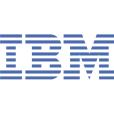 IBM (NYSE: IBM) today announced it has worked with METRO Group to implement Radio Frequency Identification (RFID) technology to improve the availability of products in its stores, enhance consumers' shopping experience, and boost supply chain performance. The companies are successfully using RFID in a system which tracks shipments from suppliers to warehouses, distribution centers and stores. The companies are also teaming on an innovative customer focused RFID project in one of METRO Group's Galeria Kaufhof department stores.
IBM (NYSE: IBM) today announced it has worked with METRO Group to implement Radio Frequency Identification (RFID) technology to improve the availability of products in its stores, enhance consumers' shopping experience, and boost supply chain performance. The companies are successfully using RFID in a system which tracks shipments from suppliers to warehouses, distribution centers and stores. The companies are also teaming on an innovative customer focused RFID project in one of METRO Group's Galeria Kaufhof department stores. Retailers worldwide are focused on deploying strategies aimed at meeting the needs of today's increasingly connected and information hungry customers. METRO Group and IBM have been working together since 2003 on projects aimed at improving operational efficiencies with RFID and ultimately improving customers' shopping experience. As part of the relationship, METRO Group has leveraged IBM's retail expertise, industry leading software products and RFID solutions.
"Our relationship with IBM has been a strategic component of our RFID programs," said Dr. Gerd Wolfram, managing director, MGI METRO Group Information Technology GmbH. "Innovation is at the heart of our strategy. Our use of RFID is improving our operational effectiveness as well as the experience of our customers."
Eye on the Supply Chain
IBM and METRO Group recently completed the rollout of Europe's largest RFID project. The system allows METRO Group to track shipments from suppliers to its warehouses and distribution centers to around 200 supermarkets and stores across Germany. It has enabled METRO Group to improve product availability and ensure that customers' expectations are met.
Pallets of goods destined for a METRO Cash & Carry or Real store contain an RFID tag when they leave the supplier or the group's distribution centers. The tags are scanned by RFID readers on delivery at a store location. The data captured by the readers is provided in real-time to METRO's merchandise information systems using the IBM WebSphere Premises Server, software which aggregates and analyzes RFID information.
Smarter Shopping with RFID
Galeria Kaufhof, a division of METRO Group, has teamed with IBM to develop and install a first of a kind system to enhance customer service in one of its department stores in Essen, Germany. As part of a pilot program, approximately 30,000 articles in the men's fashion department have been equipped with ultra high frequency second generation RFID tags.
Employees are using the system to find articles that shoppers are looking for and to monitor stock to ensure that popular items are always available. The store also features devices in the store's fitting rooms which recognize the tagged garments and display customer information such as price, fabric and care instructions.
A team of experts from IBM Global Business Services designed the system's software architecture and conducted an in-depth analysis of how to best execute the project. IBM also developed Galeria Kaufhof's Store Information System, which provides real-time information on inventory based on readouts of RFID tags. The system puts comprehensive reports on business-related performance indicators into the hands of store employees and managers.
The Galeria Kaufhof project is one of the first to use the EPCglobal architecture framework, which sets communication standards between hardware and software components while also defining data interfaces. Galeria Kaufhof can use the captured data to make better informed decisions on products it will sell in the future.
"Using RFID and Information on Demand software from IBM, METRO Group has enhanced the efficiency of its operations," said Martin Wildberger, vice president, RFID solutions, IBM. "With this project, METRO Group has proven that RFID technology is mature and reliable for use across a chain of retail stores at a reasonable cost, and with minimal effort for suppliers."
METRO Group began its move toward RFID in 2003 when it opened its "Future Store." In 2004, a first RFID pilot was run in 20 wholesale outlets. When the results proved the technology was reliable and easy to use, the company decided in 2007 to extend its use of RFID to all its Cash & Carry and Real stores.
No comments:
Post a Comment